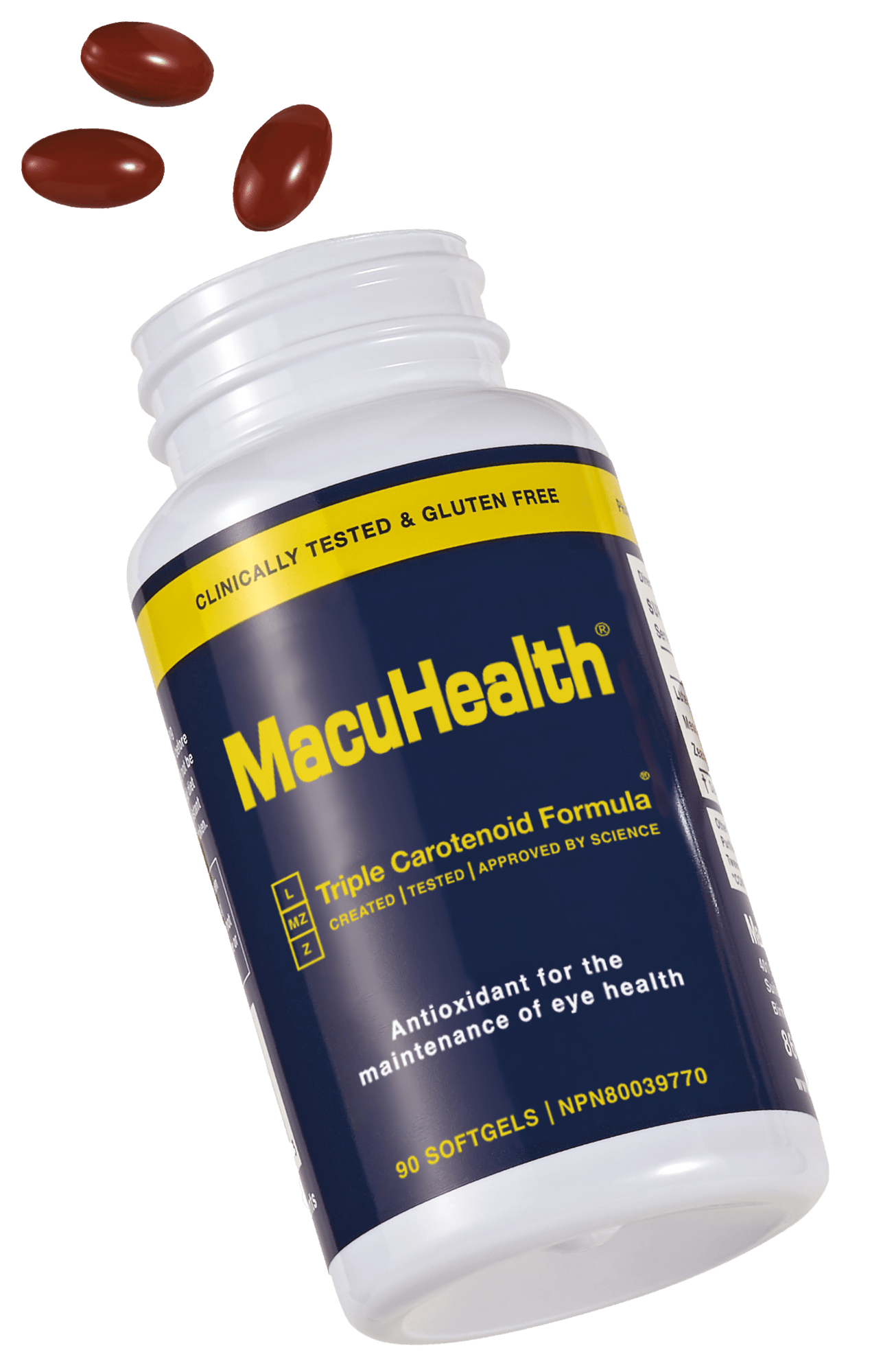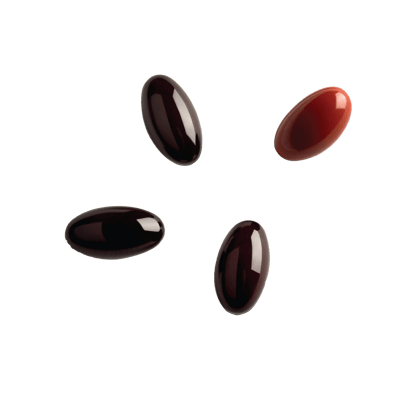
MacuHealth Triple Carotenoid Formula
Triple Carotenoid Formula
MacuHealth's unique formula stands out as the only nutritional vision supplement to include the triple carotenoids of Lutein, Meso-Zeaxanthin, and Zeaxanthin, all in the perfect 10:10:2 ratio that makes up the macular pigment.
Macular Pigments
MacuHealth's unique formulation helps maintain eyesight in conditions (associated with sunlight damage), such as cataracts and age-related macular degeneration by improving macular pigment optical density.

Patented Micro-Micelle Technology
Micro-Micelle™ Technology is a new patented process that increases carotenoid concentrations at the target issue.
Supported by Level-1 Scientific Evidence
With over 30 peer-reviewed publications that demonstrate that Macuhealth helps to maintain eye health and eyesight conditions such as cataracts and ARMD
The MacuHealth formula helps to improve your macular pigment to protect your eyes.
Protect Your Vision
Macular pigment helps protect the macula (central retina). Exposure to high energy blue light increases oxidative stress on the retina, which over time can lead to Age Related Macular Degeneration (AMD). Macuhealth helps to improve macular pigment optical density
Improves macular pigment optical density
Blue light has a negative effect on the quality of the optical image formed at the retina. In fact, blue light wavelengths scatter more than others, resulting in Glare, Chromatic Aberration, and Light Scatter. These conditions all contribute to the loss of visual acuity.
Macuhealth should be recommended to the adult patients who want to maintain eyesight in conditions (associated with sunlight damage), such as cataracts and age-related macular degeneration.
A dietary consumption of Lutein is typically 3mg per day, which is not enough. If you supplement 100 people, most of them will exhibit an increase in their macular pigment, which results in suboptimal levels of macular pigments
The very center of the eye (fovea) does not contain photoreceptors that are sensitive to blue light. Blue light is defocused and causes a phenomenon known as chromatic aberration, blurring an individual’s vision. The mechanism behind the improved visual function can be attributed to the reduction of veiling luminance (the impact of scattered blue light), chromatic aberration, and not damaging visual performance.
Macular pigment optical density reduces the risk of developing AMD and slows down the progression of AMD because:
- Provide antioxidants for the maintenance of eye health
- Because macular pigment is made up of three carotenoids (L, Z and MZ), all of which are antioxidants
There is no direct relationship between Drusen and MPOD. However, the lack of MPOD is associated with an increased risk of AMD. It is not necessarily desirable for Drusen to disappear because when they do, they almost always leave an atrophic patch and vision loss. Drusen are simply a manifestation of an underlying disease (and not the cause of the disease).
Interested in Learning More?
"All About Macular Degeneration"
Written by MacuHealth - Reviewed by Jim Stringham, Ph.D.

